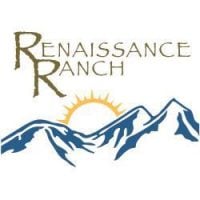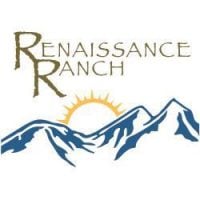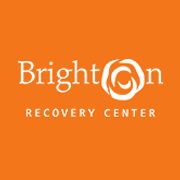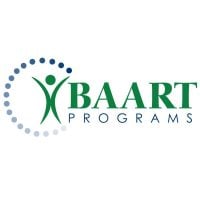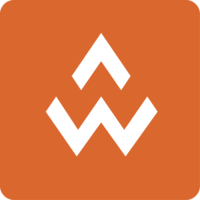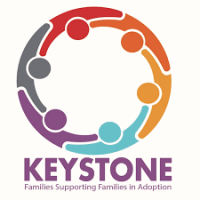Workout Addiction Recovery
Drug Rehab Center in Ogden, Utah
Workout Addiction Recovery in Ogden, Utah provides residential and outpatient rehabilitation services focusing on evidence-based practices and a variety of therapeutic modalities, with 24/7 care and the option of supervised sober-living, to those suffering from addiction and mental health disorders, and they accept most major insurance providers.
About Workout Addiction Recovery in Utah
Workout Addiction Recovery, located in Ogden, Utah, provides residential and outpatient rehabilitation services to those suffering from addiction and co-occurring mental health disorders. Their experienced and compassionate therapists offer an integrated approach to treatment, with a focus on evidence-based practices to help individuals achieve sobriety, reduce symptoms of a mental health disorder, and create lasting positive changes in their lives. The therapeutic modalities include Christian and Dialectical Behavioral Therapy (DBT), Eye Movement Desensitization and Reprocessing (EMDR), Family Therapy, Internal Family Systems (IFS), Mindfulness-Based (MBCT), Structural Family Therapy, Dual-Diagnosis, and much more.
At Workout Addiction Recovery, clients receive 24/7 care and can tailor treatments to their individual needs and preferences. They offer flexible programming and a continuum of care, from inpatient, to intensive outpatient, and outpatient services, based on their progress and needs. Clients who need residential services can do so with the option of supervised sober-living to help them transition back into their regular lives. They accept most major insurance providers, including private health insurance, to make their treatment accessible to those in need.
Genders
Ages
Modality
Additional
Religion / Spirituality
Christian
Conditions and Issues Treated
Substance abuse is the excessive use of any drug. This includes alcohol, medications, and illegal drugs. Substance abuse is treated with a combination of physical and mental treatments. Patients detox and follow up with therapies that target the underlying cause of the addiction. Substance abuse is a severe problem that can be successfully treated with a variety of therapies. Workout Addiction Recovery treatment uses a combination of therapies along with other resources to overcome substance abuse.
Opioid addiction treatment should be done in a medically supervised drug rehab. While taking opioids, users will typically use other substances to enhance the effects of opioids or to reduce the adverse effects of opioid use. Opioid addiction treatment will include detoxification and drug rehab counseling to help both the user and their loved ones learn how to live a successful sober lifestyle.
Treatments such as methadone, buprenorphine, and naltrexone are three medications that can help treat opioid addiction. These drugs work on the brain’s pleasure center and reduce cravings and the effects of illicit opioids such as heroin. These drugs can be either given orally or by injection. Individual drug rehab counseling sessions can be helpful to discuss any questions or concerns with the drug treatment program. This counseling will also help the user set goals for when they finish drug rehab.
Opioid addiction recovery is a long process. Many of the changes to the brain caused by opioid use cannot be undone, but with time and the proper treatment, a person can return to normal function. After detox, treatment will include drug rehab counseling and entering a halfway house or sober living community. Aftercare is critical to long-term recovery, as it helps the user avoid relapsing and entering back into drug rehab.
Levels of Care Offered
This center offers a variety of custom treatment tailored to individual recovery. Currently available are Dual-Diagnosis, Inpatient, Intensive Outpatient, Outpatient, Residential, with additional therapies available as listed below.
Inpatient treatment for alcoholism or drug addiction is an option that provides the addict with a supportive environment in which they can stop using. This type of treatment is appropriate for addicts that are most in need of intensive care and supervision. This includes those who were unable to quit on their own, those who need more structure than they can get in outpatient treatment.
Intensive outpatient treatment is a type of comprehensive addiction care. Unlike conventional residential treatment programs, the patients live at home during the recovery process. This means that one can continue working and caring for their families. These also allow people to keep pursuing their studies while also working on their sobriety.
Outpatient treatment can help one transition to normal life from the round-the-clock supervision and treatment available during inpatient treatment. It is an excellent tool to ensure long-term recovery. However, it is essential to note that intensive outpatient treatment in itself does not remove patients from the real-world setting. This means there’s always a higher risk of coming across environmental triggers. To further prevent relapse, an outpatient treatment center should be able to provide ongoing support services.
Once the patient is enrolled in an intensive outpatient treatment program, they will be expected to attend therapy and group meetings daily for a stipulated period. The frequency and duration of each session will depend on the patient’s needs and level of addiction. This can help curb the habit and deal with underlying issues that led to it. Most of these professional treatments are designed to allow patients to structure their daily schedules in a way that is conducive to recovery.
“Outpatient treatment is ideal for those who have a lower intensity addiction. It’s also suitable for those with a supportive environment and those on a tight budget.
Outpatient treatment can be considered the lowest intensity level of addiction treatment. It is ideal for early phase addiction or lower intensity addictions. It may involve weekly sessions instead of daily. Peer group support, 12-step programs, and individual counseling may still be used and anti-addiction medication.
Residential treatment programs are those that offer housing and meals in addition to substance abuse treatment. Rehab facilities that offer residential treatment allow patients to focus solely on recovery, in an environment totally separate from their lives. Some rehab centers specialize in short-term residential treatment (a few days to a week or two), while others solely provide treatment on a long-term basis (several weeks to months). Some offer both, and tailor treatment to the patient’s individual requirements.
Therapies & Programs
No single treatment works for all addicts; therefore, the goal of treatment and therapy should be to find what works best for each individual. Some people requiring addiction treatment may only need a few weeks of inpatient care. Others will require long-term residential care. Tolerance and withdrawal levels vary from person to person and thus affect the intensity of the treatment needed.
If an individualized approach to treatment and therapy is not offered, addicts may fail to reap benefits from their efforts. Professionals must customize plans according to their patient’s needs, limitations, and strengths. The goal of all forms of addiction treatment should be for addicts to find healthy ways to cope with their addiction and its underlying causes.
The therapies usually include siblings, children, and parents who are involved in their daily lives. These sessions are vital because they address past issues that may have hampered an addict’s or alcoholic’s recovery and provide support at a crucial time!
One of the most critical aspects of family therapy is helping addicts’ loved ones see their situation in a new light. It’s also one of the most challenging things a family can do when a loved one struggles with addiction or alcoholism.
Dialectical Behavior Therapy is a form of Cognitive Behavioral Therapy that helps patients understand the relationship between their thoughts, feelings, and behaviors. It is beneficial for those whose addictions and behaviors stem from severe mental health issues. It aims to help the patient achieve their goals and identify how they can enhance their lives.
Eye Movement Desensitization and Reprocessing (EMDR) is a fairly new treatment modality used with patients diagnosed as suffering from post-traumatic stress disorder (PTSD) or drug and alcohol cravings.
EMDR is considered to be a form of cognitive-behavioral therapy (CBT) and exposure therapy. CBT is a technique used to help individuals replace maladaptive, symptomatic behaviors with more appropriate ones utilizing cognitive, emotional, or behavioral interventions. Exposure therapy is a type of CBT used to treat anxiety disorder individuals by gradually introducing the patient to the feared object, activity, or situation in a safe and controlled environment.
EMDR therapy is a form of exposure therapy that combines CBT with other approaches such as psychodynamic and interpersonal. It is believed to help patients reprocess their memories, thoughts, and emotions to heal from the trauma of their experience. The goal is to help patients lead more normal lives by reducing the distress that has been associated with the memories of an event through the use of CBT techniques.
Payment Options Accepted
For specific insurance or payment methods please contact us.
Is your insurance accepted?
Ask an expert, call (888) 674-0062
Additional Details
Specifics, location, and helpful extra information.
Ogden, Utah 84403 Phone Number(385) 213-2842 Meta DetailsUpdated November 25, 2023
Staff Verified
Workout Addiction Recovery Patient Reviews
There are no reviews yet. Be the first one to write one.
Ogden, Utah Addiction Information
More than 500 people in Utah die each year from the effects of drug abuse and/or addiction. Substance abuse rates in Utah have seen an upward trend for a variety of drugs. Opioids are involved in almost 70% of all drug-related deaths in the state, annually. In 2014, Utah officials created a Good Samaritan Law to protect drug users who report possible overdoses from being prosecuted themselves.
In 2018 Ogden had a rate of 9.8% for illicit drug use. 42% of people who sought treatment for addiction have a history of marijuana use. Heroin is involved in 24% of all drug-related deaths in Weber County. Unemployed men are more likely to develop an addiction. If you are not sure which type of treatment is best for you, talking to your doctor or counselor will be the best for you.
Treatment in Nearby Cities
- Virgin, UT (281.6 mi.)
- Hurricane, UT (285.2 mi.)
- South Jordan, UT (41.8 mi.)
- Loa, UT (191.8 mi.)
- Tremonton, UT (39.4 mi.)
Centers near Workout Addiction Recovery
The facility name, logo and brand are the property and registered trademarks of Workout Addiction Recovery, and are being used for identification and informational purposes only. Use of these names, logos and brands shall not imply endorsement. RehabNow.org is not affiliated with or sponsored by Workout Addiction Recovery.

